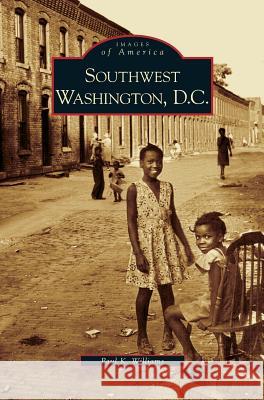Southwest Washington, D.C. » książka
Southwest Washington, D.C.
ISBN-13: 9781531625580 / Angielski / Twarda / 2006 / 130 str.
Southwest Washington, D.C.
ISBN-13: 9781531625580 / Angielski / Twarda / 2006 / 130 str.
(netto: 117,08 VAT: 5%)
Najniższa cena z 30 dni: 121,25
ok. 16-18 dni roboczych.
Darmowa dostawa!
Southwest Washington, D.C., is a defined neighborhood even without a proper name; the quadrant has a clear border southwest of the U.S. Capitol Building, nestled along the oldest waterfront in the city. Its physical delineations have defined it as a community for more than 250 years, beginning in the mid-1700s with emerging farms. By the mid-1800s, a thriving urban, residential, and commercial neighborhood was supported by the waterfront where Washingtonians bought seafood and produce right off the boats. In the 1920s and 1930s, an aging housing stock and an overcrowded city led to an increase of African Americans and Jewish immigrants who became self-sufficient within their own communities. However, political pressures and radical urban planning concepts in the 1950s led to the large-scale razing of most of SW, creating a new community with what was then innovative apartment and cooperative living constructed with such unusual building materials as aluminum.
Southwest Washington, D.C., is a defined neighborhood even without a proper name; the quadrant has a clear border southwest of the U.S. Capitol Building, nestled along the oldest waterfront in the city. Its physical delineations have defined it as a community for more than 250 years, beginning in the mid-1700s with emerging farms. By the mid-1800s, a thriving urban, residential, and commercial neighborhood was supported by the waterfront where Washingtonians bought seafood and produce right off the boats. In the 1920s and 1930s, an aging housing stock and an overcrowded city led to an increase of African Americans and Jewish immigrants who became self-sufficient within their own communities. However, political pressures and radical urban planning concepts in the 1950s led to the large-scale razing of most of SW, creating a new community with what was then innovative apartment and cooperative living constructed with such unusual building materials as aluminum.











